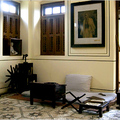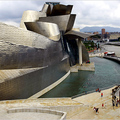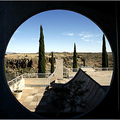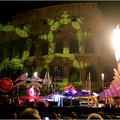WHEN Albert Gallatin, the United States Treasury secretary under Thomas Jefferson, first dreamed up what would become, more than a century later, the Atlantic Intracoastal Waterway, he envisioned a series of linked rivers, canals, bays and deep-water channels that would provide an easy way to transport cargo and troops back and forth between the North and the South.
Today, that 1,300-mile Waterway is more commonly traveled by people like Bill Breiling.
On a gray, chilly day in early May, Mr. Breiling could be found sitting on the deck of High Spirits, his 48-foot powerboat, as it docked in Beaufort, N.C., a sleepy former fishing village near the Outer Banks. Mr. Breiling was five weeks into a watery pilgrimage from his winter home in Boca Raton, Fla., to Brewerton, N.Y., near Syracuse, a journey that would take him 20 more weeks and provide plenty of opportunity to serve up the house specialty — vodka and grapefruit juice, with a squeeze of limes grown in his backyard — to fellow boaters he would meet along the way.
“It’s really such a close-knit community,” said Mr. Breiling, as Barbara Sloan, his companion of 20 years, pointed out a wild brown horse on nearby Carrot Island. “And everybody in this community talks to everybody else.”
Late spring means the start of an annual migration of snowbirds like Mr. Breiling, who make their way north each year. Using the Waterway — whose most heavily traveled leg stretches from Key Largo, Fla., to Manasquan, N.J. — as a kind of floating I-95, they move slowly up the coast, going perhaps 30 miles a day, and stopping off at places like Georgetown, S.C.; Elizabeth City, N.C.; and Beaufort, to rest for a day or two, to refuel and maybe hit the shore for a little shopping, to renew old acquaintances and make new friends. (The Waterway’s historic version continues to Gloucester, Mass., and there is also the Gulf Intracoastal Waterway, an interrupted 1,700-mile leg along the coast of the Gulf of Mexico.)
Known as cruisers, these long-haul adventurers stow their key worldly possessions in onboard lockers and load up on fuel, food and charts, as well an increasing number of satellite phones and laptops, to explore America’s waters by boat, in journeys that can play out over several states, and months.
ALTHOUGH precise numbers of cruisers are hard to come by — most marinas don’t keep tabs on where people are coming from or heading to, and many cruisers adopt low profiles, anyway — their numbers are definitely rising, say longtime boaters, marina officials and industry analysts, especially among the retirement-age set, who seem to be forgoing the Winnebago for a Grand Banks or a Sabre.
And Beaufort (pronounced “BOW-fort,” not “BYOO-fort,” like its South Carolina namesake), because it sits just a few miles east of the waterway, has become a popular cruiser pit stop, said Joseph Brearey, known as Jeb, who is Beaufort’s dockmaster. He fields phone calls daily from cruisers wanting to moor at one of Beaufort’s 98 slips.
Slender and soft-spoken, with wire-frame glasses and just the hint of a drawl, and missing a thumb tip on his right hand, Mr. Brearey guesses that cruiser traffic has jumped 40 percent in the last decade in Beaufort, where he has worked the docks since 1978. In fact, on a given late-spring day, three-quarters of all boats in the harbor might be cruising, he said, as opposed to being boats from the region.
These migratory boaters are hardly roughing it. “In the old days, more people caught fish for dinner; now there tend to be steaks in the coolers,” Mr. Brearey said, his walkie-talkie crackling. It was a call from the captain of a 110-foot powerboat, which had started out in Fort Lauderdale, Fla., who wanted to reserve a berth for the night. (Mr. Brearey urged him to arrive before sunset, to avoid shoals, which on the Waterway can be nasty.)
Until the 1980s, Beaufort was known for its fish factories, which extracted oil from menhaden, then loaded it onto trains parked at its docks. Few traces of that era survive, though, since a full-scale redevelopment recast the village, which has a full-time population of 4,000, as a maritime center, one in which the marina amenities include the use of a car (included in the docking fees of $2 per foot per night), which allows boaters to zip to the grocery store.
Beaufort has also become a popular launching pad for side trips, to the diamond-patterned lighthouse at Cape Lookout or upriver to New Bern, founded by a Swiss explorer in 1710. Or, boaters can loll around Front Street, Beaufort’s six-block-long commercial strip, which is chock-a-block with bars, coffee shops and restaurants; there’s also a maritime museum.
Where most boaters tend to congregate, though, is in Beaufort’s coin-operated laundry, tucked behind the General Store. In the cinder-block laundry room, free books, some inscribed with the names of their boats of origin, are stacked on a bench below ads listing services at local churches.
Here, boaters swap tales of too-close-for-comfort target practice at Camp Lejeune and not-close-enough whale sightings off the coast. They also trade tips on cleaning plastic (add vinegar to water) and where to find the best apple fritters (Swansboro, N.C.).
Mary Crossley, her straight hair spilling below her zip-up jacket’s collar, removed quarters from a sealed plastic bag as she talked of piloting her 39-foot sailboat from the Bahamas to Maine, a journey she has taken every year since 1999.
Because she was running a bit of ahead of schedule, she had decided to take a few days’ break in Beaufort. But she added that her money was beginning to run low because the Waterway was getting more expensive every year with high docking fees, like those at Beaufort’s marina, becoming more common.
“It’s expensive to go out to eat, buy gifts — really getting tough for the middle class,” Ms. Crossley said as she pulled towels from a dryer. “And this is a lot of people’s retirement.”
Back on the docks, the clouds were still thick, which muted the light, giving the sky the milky-white hue of seashells.
Aboard a blue-hulled sailboat, with an inflatable raft suspended across its back, Keith May, with a silver, drooping David Crosby-like mustache, and his wife, Carolyn, with eyeglasses perched on her head, drank their morning coffee. They sold their restaurant in Camden, Me., last fall, and after wintering in the Bahamas, they were headed home, where months of unpaid bills awaited, Mr. May said.
He marveled that the Waterway could temporarily unite two distinct species, powerboaters and sailboaters, who have historically avoided each other like the plague. “This is the closest I’ve been to one in weeks,” said Mr. May, his voice unhurried as he gestured to a powerboat parked a buoy’s-width away. “But I guess we’re all like-minded.”
A bad fuel injector on his 42-foot powerboat had kept Jerry Caravan, who keeps the boat in Little River, S.C., stuck for an extra day in Beaufort. Still, Mr. Caravan, whose short-sleeve knit shirt was stretched tight over his stomach, seemed to take the delay in stride, as he headed to the DockHouse, where the Weather Channel plays round-the-clock on bar-side televisions. His brother Barry, whose left ear sparkles with an earring, ordered a round of Yuengling drafts, which they nursed outside.
Later, as he explained it the next morning, his eyes rimmed red, Mr. Caravan had met local fishermen, who kept him slinging back drinks till Beaufort’s bars closed around 3 a.m. “There’s a great, friendly group of people here, who love to help each other,” Mr. Caravan said, gazing at a harbor riffled by a breeze where a pair of new arrivals nosed in. “That’s what it’s all about.”






